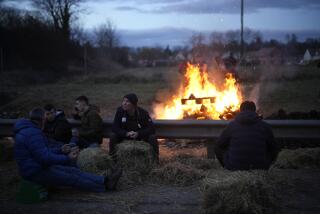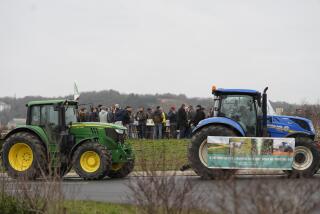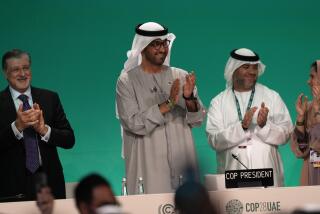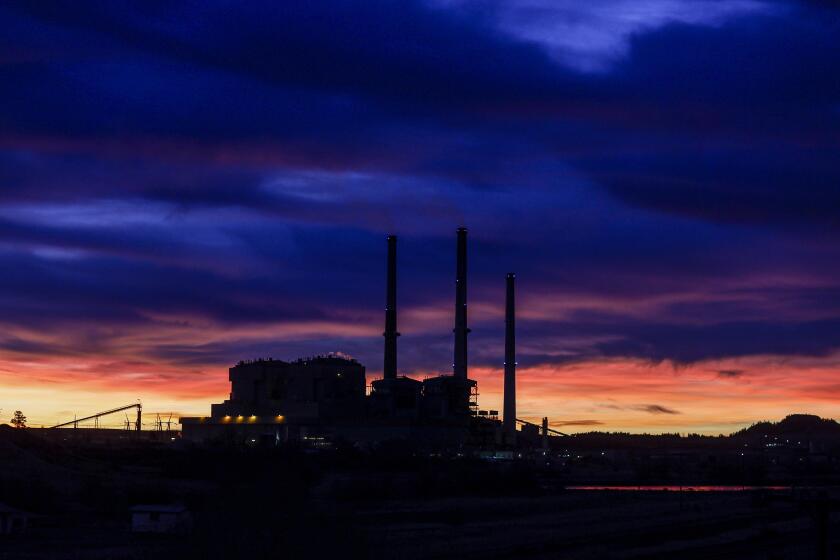Hope for the worlds poor farmers
When world leaders start talking up an imminent breakthrough on a huge trade deal, it’s kind of like when local officials say they’re inches away from bringing pro football back to Los Angeles: We’ll believe it when we see the contract, preferably signed in blood. We’ve been teased too many times before.
The teasers are out with a vengeance this week, holding a flurry of top-level trade meetings around the world and insisting that the key players are this close to a breakthrough in the Doha round of World Trade Organization talks, which focus on lowering barriers to agricultural products around the world. Doha is critical not only because it would boost economies everywhere, but because it would finally level the playing field for poor agrarian nations eager to trade their way out of poverty but currently stymied by subsidized agribusiness in rich countries.
The Doha talks were suspended in July, mainly because of an impasse between the United States and the European Union. Persuading farmers in countries such as France, where agricultural subsidies are treated like a cultural patrimony, to give them up has been tough sledding for EU officials. The U.S. has been slightly more flexible, but its offers on subsidy cuts have also been disappointing thanks to a domestic farm lobby whose political influence is way out of proportion to its share of the economy, and a leadership in Washington that has failed to make the case for free markets at home.
We’ve heard more than once that a given round of talks was the last chance to revive Doha, but the negotiations now underway probably do represent the last-last chance, at least until a new U.S. president takes over in 2009. President Bush’s fast-track trade authority expires in July, which gives very little time to cement a deal unless Congress agrees to extend it. And the new Democratic majority doesn’t seem all that accommodating on trade.
Bush talked about Doha on Monday with Jose Manuel Barroso, president of the European Commission, while their respective trade ministers -- Peter Mandelson on the European side and Susan Schwab for the U.S. -- hashed over the details. Everybody emerged smiling, but nobody gave any specifics. “We came to Washington today looking for new impetus for the Doha negotiations, and I believe we found it,” Mandelson said. The goal is for the U.S. and Europe to reach a deal within the next two weeks that they could take to Davos, Switzerland, during the World Economic Forum this month. There, negotiators would hope to sell the deal to India and Brazil, which have been reluctant to lower their barriers to industrial and farm products.
Bush has made few efforts to sell Doha to the American public. He needs to put his political capital where his mouth is and OK deeper cuts in U.S. farm supports. That goes double for Barroso and the Europeans.
More to Read
A cure for the common opinion
Get thought-provoking perspectives with our weekly newsletter.
You may occasionally receive promotional content from the Los Angeles Times.






